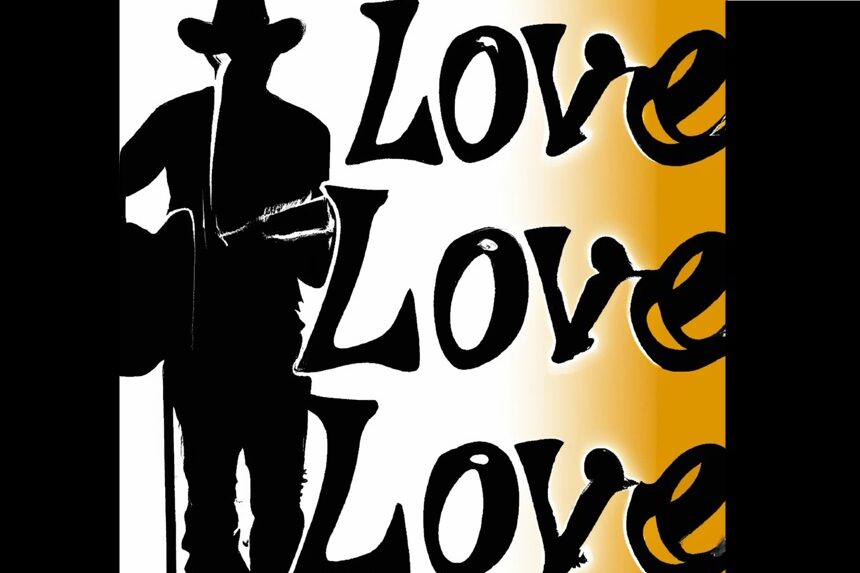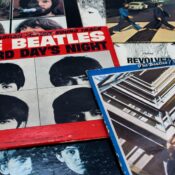Singer-songwriter Tracy Chapman made history last year when she became the first Black artist to receive the Country Music Association’s Song of the Year Award, after Luke Combs remade a song she wrote—the 1988 hit “Fast Car”—and it soared to No. 1 on the Country Airplay chart.
If only the late, great Black singer-songwriter Ted Jarrett had been alive to witness Chapman’s achievement. Like Chapman, Jarrett sticks out as a kind of oddity—the rare Black musician who wrote a country No. 1 and became renowned for it. That there are not more examples of hit country songs written by Black songwriters speaks to America’s racial divide, which, for many decades, dictated how music was marketed. The fact is, Chapman’s and Jarrett’s songs, and the country stars who perform them, have a great deal in common. They express in uncomplicated and memorable ways the everyday experiences of everyday Americans. Looking at it that way, Chapman’s CMA honor was not an anomaly; it was inevitable, if long overdue.
Country music and Black folk music are rooted in centuries of symbiotic relationships between southern Black and white singers, songwriters, musicians, and audiences. As early as the 18th century, African American traditional fiddlers were familiar sights on slave plantations in the South. They were “the center of social activities during the evenings for relaxation as well as during holiday festivities, providing music not only for blacks but for the white slave owners on holidays and for their private parties,” wrote musical polymath Terry Jenoure in 1981, in the journal Contributions in Black Studies.
The banjo, an instrument with African origins, became the signature sound of string band and bluegrass music beloved especially by southern white migrants toiling in northern factories and stockyards. Jazz genius Louis Armstrong and his wife Lil Hardin Armstrong accompanied Jimmie Rodgers, one of country music’s first modern superstars, on Rodgers’ 1930 recording of “Blue Yodel #9.” African American harmonica player DeFord Bailey was one of the first artists heard on WSM’s “Grand Ole Opry” radio broadcast. Black country crooner Charley Pride garnered CMAs and Grammys. Ray Charles’s two Modern Sounds in Country and Western Music albums became bestsellers in 1962.
Jarrett’s life and work reflect this give and take.
Theodore Roosevelt “Ted” Jarrett Jr. was born in Nashville, Tennessee, on October 17, 1925, just more than a month before Nashville station WSM launched the “Grand Ole Opry,” the radio broadcast that turned Nashville into the country music capital. Jarrett’s upbringing was a riches-to-rags story. His father, Theodore Roosevelt Jarrett Sr., earned enough money working for a bootlegging enterprise to enable his family to employ a housekeeper, a cook, and a nurse. But after Ted Sr. was shot and killed, Jarrett’s mother, unable to maintain the family’s standard of living, sent 7-year-old Ted Jr. and his sister, Dorothy, to live with their grandmother and step-grandfather on their Antioch, Tennessee farm. When they were old enough, Ted and Dorothy joined their grandparents in picking cotton and doing other farm work.
Ted always had an imaginative mind, and from knee pants, he spent what little free time he had writing poems. In his pre-teen years, Jarrett was intrigued by newspaper ads that shouted about the “thousands of dollars” to be made by submitting song poems, or lyrics, for publication. Ignoring his step-grandfather’s dismissive retort that “Black boys don’t write songs,” and with surreptitious support from his grandmother, Ted eagerly sent samples of his song-poems to the advertisers. To his dismay, the so-called publishers turned out to be nothing more than “song sharks” who preyed on the hopes of amateur lyricists, only to defraud them in the end.
Disappointed but not daunted, Jarrett made music throughout high school, and enrolled in the music program at Fisk University after graduation. He had to delay his studies when he was drafted during World War II, and again later, when his GI Bill money ran out. To pay the bills, he dove full-time into Nashville’s postwar music scene, fitting in a class or two at Fisk whenever he had extra money.
Jarrett wrote songs and pitched them to Music City publishers. He also worked as a disc jockey on pioneering African American radio station WSOK, as a pianist in the city’s then-booming R&B club circuit, as a talent scout for the R&B and country label Tennessee Records and, briefly, as tour manager for Nashville’s Radio Four gospel quartet. In 1955, his song “It’s Love Baby (24 Hours a Day)” became an R&B hit for local unit Louis Brooks and His Hi-Toppers, and for bigger stars like Ruth Brown, and the vocal group the Midnighters.
Jarrett wrote his first No. 1 Country hit, “Love, Love, Love,” that same year. The song, an exuberant pledge of eternal affection, caught the attention of Webb Pierce, a white singer, guitarist, songwriter, and Opry star known for wearing elaborately decorated “Nudie Suits.” Pierce’s version of “Love, Love, Love,” which gave Jarrett’s song a pedal-steel-drenched reading that sounded like a long-lost Hank Williams piece, spent 32 weeks on the U.S. country chart, eight at number No. 1. In November 1955, Billboard presented the song with a Triple Crown Award for being the most played country record on radio and jukeboxes, and the best-selling country record in stores. The December 10, 1955 issue of the trade magazine the Cash Box featured a smiling Jarrett holding 78 rpm singles of three versions of the song: one by Pierce, one by pop crooner Johnny Ray on Columbia, and his own recording for Nashville imprint Excello.
But all of Jarrett’s success didn’t shield him from the racism embedded in the music industry. Take an incident in 1956, when the Broadcast Music, Inc. (BMI), an organization that represents songwriters and music composers and publishers, saluted Jarrett and “Love, Love, Love” at Nashville’s Hermitage Hotel. Arriving in black tie at the hotel where his mother once worked, Jarrett was stopped at the door by a white police officer who thought he was trying to crash the party. The mishap was quickly rectified, but Jarrett reflected in his 2005 memoir that initially “all the people inside [the event] stared at me, wondering what a black man was doing at the country awards.”
Jarrett only had one big country hit. But he maintained a relationship with the country music community by helping the Country Music Hall of Fame and Museum curate “Night Train to Nashville,” a 2004-2005 exhibit that chronicled Nashville’s significant but often overlooked contributions to R&B. A two-album compilation inspired by the exhibit earned a Grammy in 2005 for Best Historical Recording. (Today, thanks to a grant from the National Endowment for the Humanities, you can view the “Night Train to Nashville” exhibit online.)
By his death at age 83 in March 2009, Jarrett had showed his step-grandfather, and the world, that “Black boys” could write songs, even hit country songs for white artists. More importantly, Jarrett—and now Chapman—demonstrated that a good song is a good song, no matter who sings it, when, where, or in what genre.
Robert M. Marovich is editor-in-chief of The Journal of Gospel Music, a Grammy-nominated liner notes writer, and author of Peace Be Still: How James Cleveland and the Angelic Choir Created a Gospel Classic.
Originally published on Zócalo Public Square. Primary Editor: Eryn Brown | Secondary Editor: Jackie Mansky
Become a Saturday Evening Post member and enjoy unlimited access. Subscribe now




Comments
Interesting feature for sure, on singer-songwriter Ted Jarrett. I’m sure his name would be (and have been) much more well known had he not been Black. It’s wrong, but enlightened articles like this are changing that. The connections between Black folk music and country aren’t that surprising. Tracy Chapman’s CMA honor certainly was hers, but also Jarrett’s as well. I like to think he knows that.